
A major forum held during the 2024 China Golden Rooster and Hundred Flowers Film Festival explored development trends within the Chinese film industry, calling for all relevant parties to unite for
Government officials, filmmakers, industry insiders, actors and experts gathered at the Gulangyu Forum, held on the Gulangyu Island in Xiamen, Fujian province on Nov. 15, to discuss the future of Chinese cinema and the current direction that the industry is going.
In recent months, China's film market has been struggling with low box office sales and moviegoers either complaining about high ticket prices and a lack of quality content or choosing other entertainment options. Fu Ruoqing, chairman of China Film Group and China Film Co. Ltd., mentioned that China Film Group is currently working on pushing for reform and innovation. He stressed the importance of adhering to a "people-centered" approach in filmmaking, emphasizing that moviegoers are the core motivator for the development of the industry.
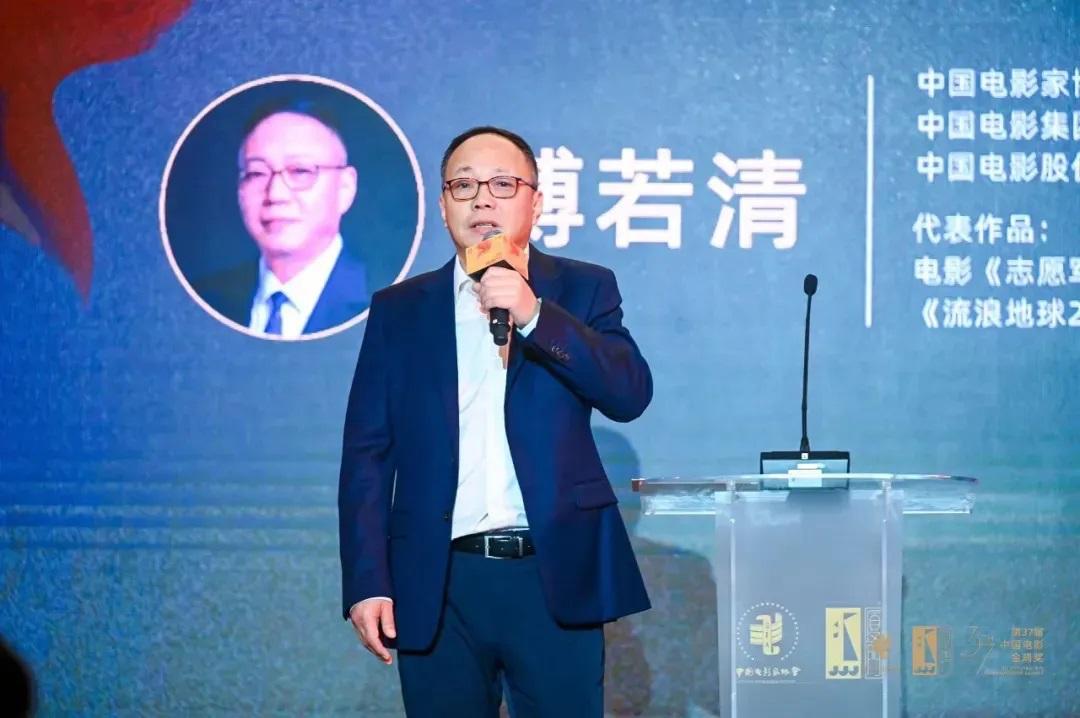
Fu Ruoqing, chairman of China Film Group and China Film Co. Ltd., speaks at Gulangyu Forum in Xiamen, Fujian Province, Nov. 15, 2024. [Photo courtesy of the China Golden Rooster and Hundred Flowers Film Festival Organizing Committee]
"In the various survey results that I have seen, the most common phrase I encountered was from audiences saying, 'there are no good movies to watch.' This statement is not a denial of cinema, but rather an expression of blame and complaint. It reflects a reluctance to settle for less due to the cherished position of movies, emphasizing a longing for 'good' movies and pointing out the deficiencies in the film market," he noted.
Fu further shared: "Faced with the current policy environment and the foundation built by decades of reform and development, creators should uphold the strategies of strengthening cultural power, cultural confidence and technological innovation. They should have the courage to face challenges and seize opportunities."
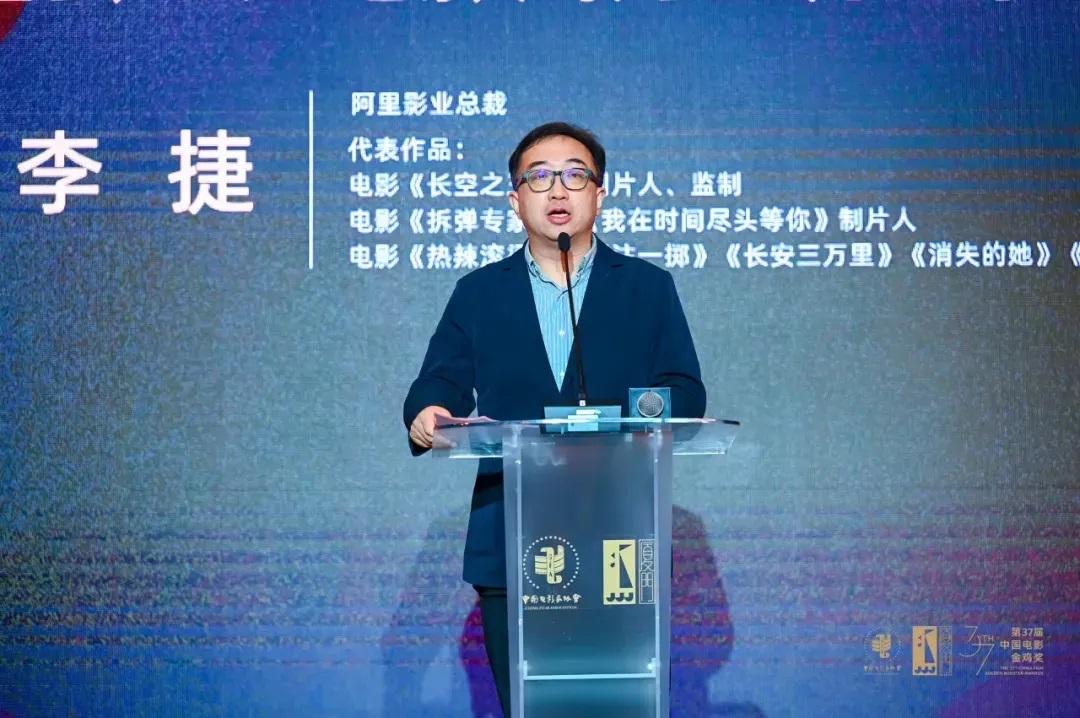
Li Jie, president of Alibaba Pictures, speaks at Gulangyu Forum in Xiamen, Fujian province, Nov. 15, 2024. [Photo courtesy of the China Golden Rooster and Hundred Flowers Film Festival Organizing Committee]
Li Jie, president of Alibaba Pictures, delivered a keynote speech that advocated for film to become a medium for cultural exchange. Li also emphasized the importance of internationally distributing films that portray traditional Chinese culture, Eastern aesthetics as well as contemporary Chinese stories, adding that the Chinese film industry's 2024 release roster is dominated by domestic films, with imported films serving as an enhancement.
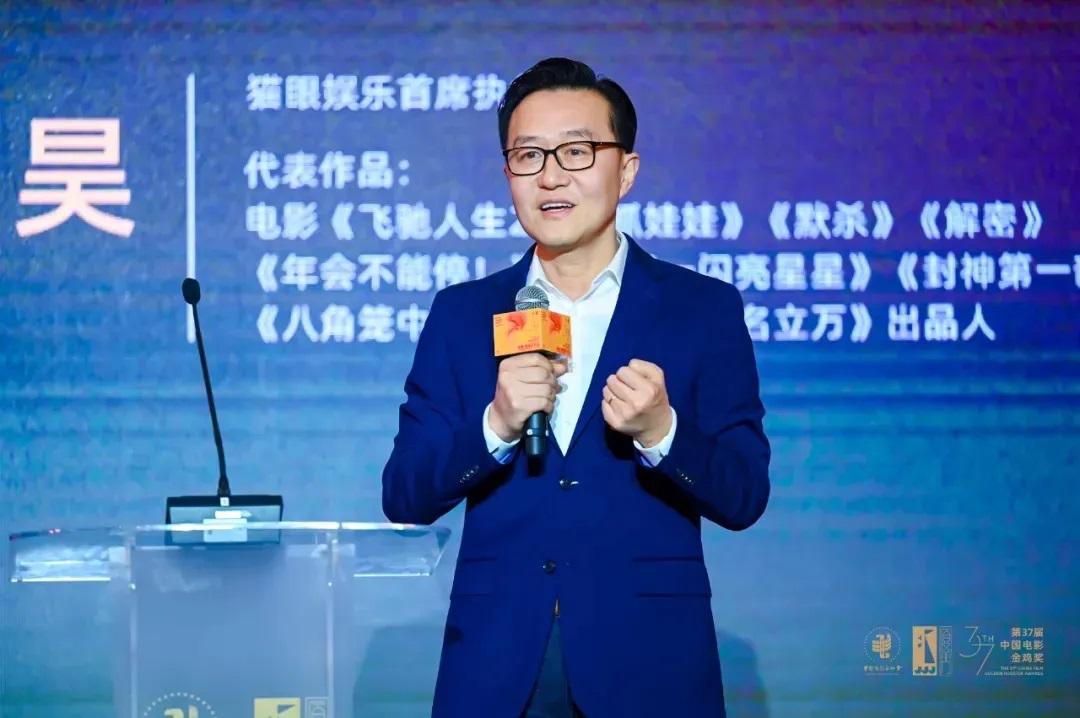
Zheng Zhihao, CEO of Maoyan Entertainment, speaks at Gulangyu Forum in Xiamen, Fujian province, Nov. 15, 2024. [Photo courtesy of the China Golden Rooster and Hundred Flowers Film Festival Organizing Committee]
Zheng Zhihao, CEO of Maoyan Entertainment, also highlighted that filmmakers should discover compelling Chinese stories, challenge their creative boundaries, meet audiences' expectations regarding the value and quality of films, and embrace technological advancements to enhance creativity.

Chen Zhixi, chairwoman and president of Wanda Film, speaks at Gulangyu Forum in Xiamen, Fujian province, Nov. 15, 2024. [Photo courtesy of the China Golden Rooster and Hundred Flowers Film Festival Organizing Committee]
Chen Zhixi, chairwoman and president of Wanda Film, discussed creating a "three-in-one" super entertainment space, expressing Wanda Film's desire to create a space in their "super cinemas" that integrates artistic empowerment, avant-garde trends and urban creativity.
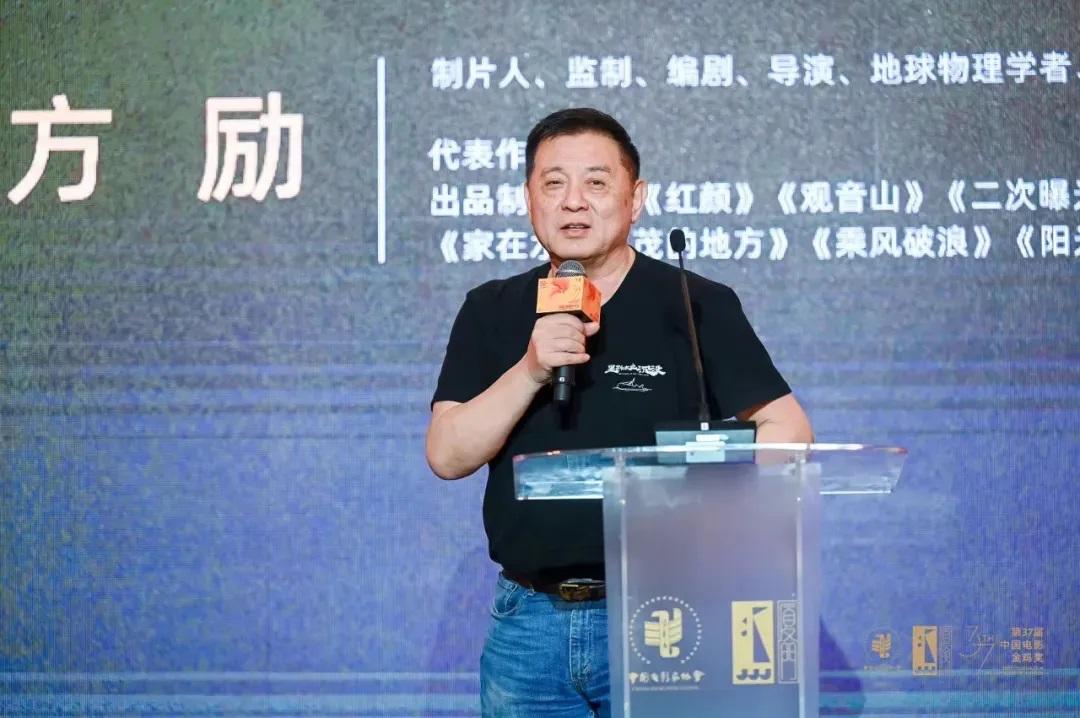
Fang Li, a veteran producer in the film industry, speaks at Gulangyu Forum in Xiamen, Fujian province, Nov. 15, 2024. [Photo courtesy of the China Golden Rooster and Hundred Flowers Film Festival Organizing Committee]
Fang Li, a veteran producer who became a first-time director with the award-winning documentary "The Sinking of the Lisbon Maru," suggested potential innovation in the industry at large with an idea to extend films' screening permits for longer theatrical runs or to grant permits which would allow films to be screened indefinitely. He also proposed establishing 24-hour community theaters to cater to audiences' lifestyles.
Fang also hopes that films can be imprints of an era for younger generations. "The new generation still loves movies because, in the era of short videos and fragmentation, we tend to cherish films that offer genuine emotions even more," he said.
Besides a panel discussion, three research reports were also released during the forum, providing insights into various aspects of the Chinese film industry. The 2014-2024 Film Art Development Report of Chinese Cinema summarized the development of the Chinese film industry over the past decade, highlighting that Chinese cinema has seen the fourth longest "golden age." The 2024 China Film Investment and Financing Report offered detailed financial analysis, urging the industry to respect market creation rules, embrace technological changes and collaborate for the high-quality development of Chinese cinema. Meanwhile, the 2024 Report on Trends in Chinese Film Audiences examined changes in China's film market and moviegoers' habits from multiple perspectives throughout the year.
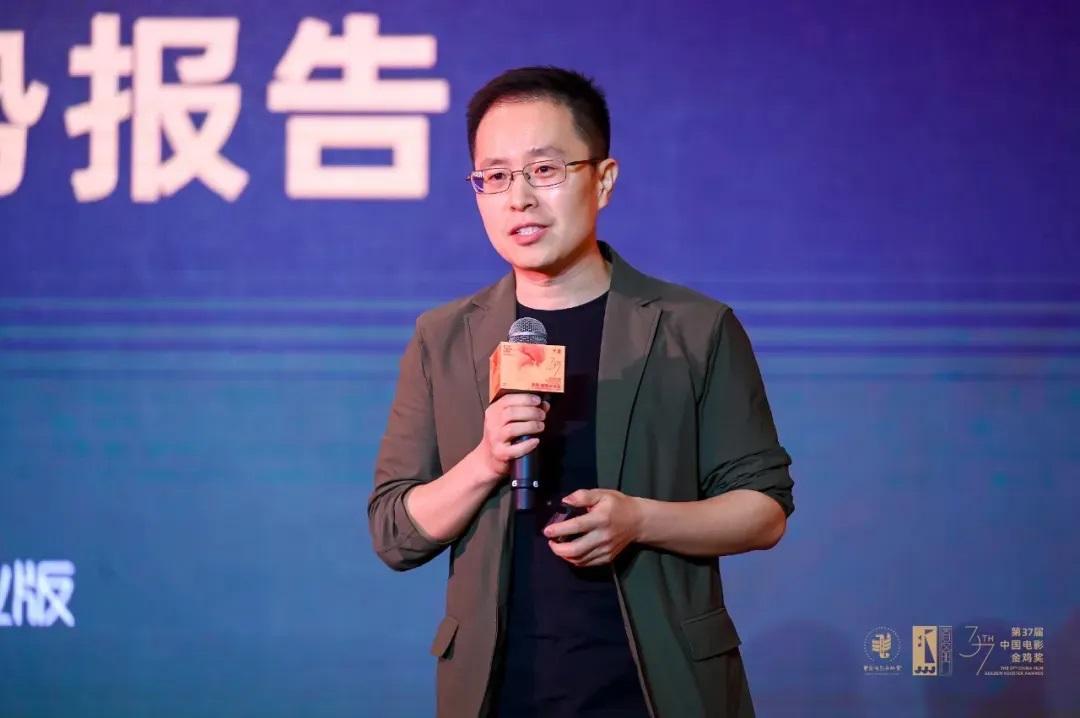
Mu Chen, head of the Lighthouse Research Institute, speaks at Gulangyu Forum in Xiamen, Fujian province, Nov. 15, 2024. [Photo courtesy of the China Golden Rooster and Hundred Flowers Film Festival Organizing Committee]
Mu Chen, head of the Lighthouse Research Institute under Alibaba Pictures, stated that in an environment where audience consumption is becoming more rational and other entertainment options are competing for their attention, films must not only focus on the numbers, quality and diversity in offerings but also emphasize the advantages and irreplaceability of cinema compared to other forms of entertainment.
"It is crucial to continuously provide content that audiences enjoy to attract them to theaters, make them appreciate the experience and keep them coming back," he said. "From the analysis of content supply numbers and box office contributions, the potential for diverse content remains to be further explored and unleashed."

Filmmakers and actors join a roundtable panel during the Gulangyu Forum in Xiamen, Fujian province, Nov. 15, 2024. [Photo courtesy of the China Golden Rooster and Hundred Flowers Film Festival Organizing Committee]
During a roundtable session held after the discussion, notable directors Zhang Ji and Dong Runnian, along with renowned actors Yue Hong and Ma Li, joined the panel. They explored topics such as how to reflect on the era's issues and people's concerns with film, how to create more layered and realistic characters as well as how to better connect with audiences. During the session, Dong expressed that in the face of rapidly developing internet technology and artificial intelligence, creators need to deeply connect with real life while also being aware of what's happening online in order to understand moviegoers' mindsets. Ma echoed this sentiment, emphasizing that actors need to be grounded in life as well as be able to resonate with audiences by playing authentic roles, urging filmmakers to produce more movies with positive social messages.
